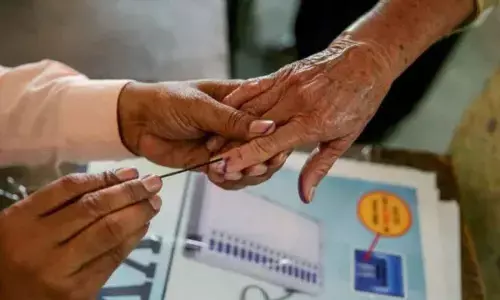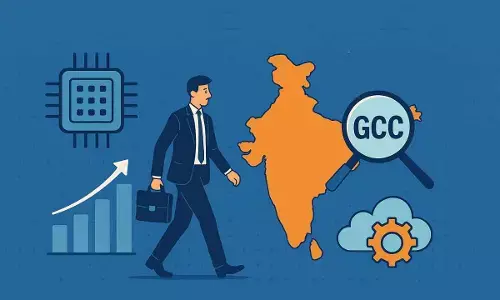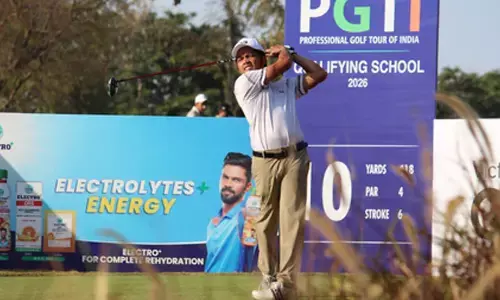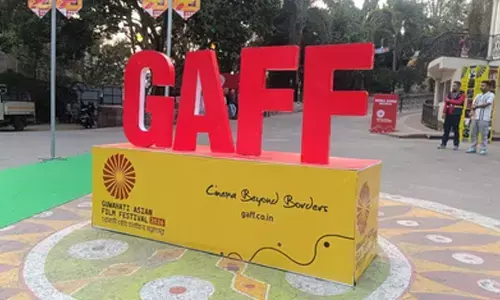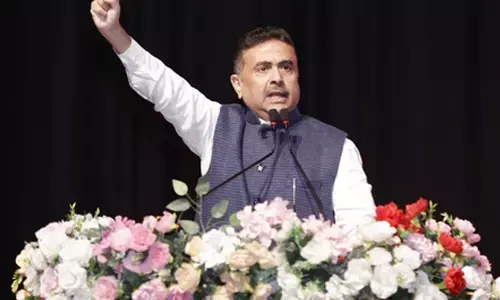Ramja Genosensor's paper-based device detects infections in 90 minutes
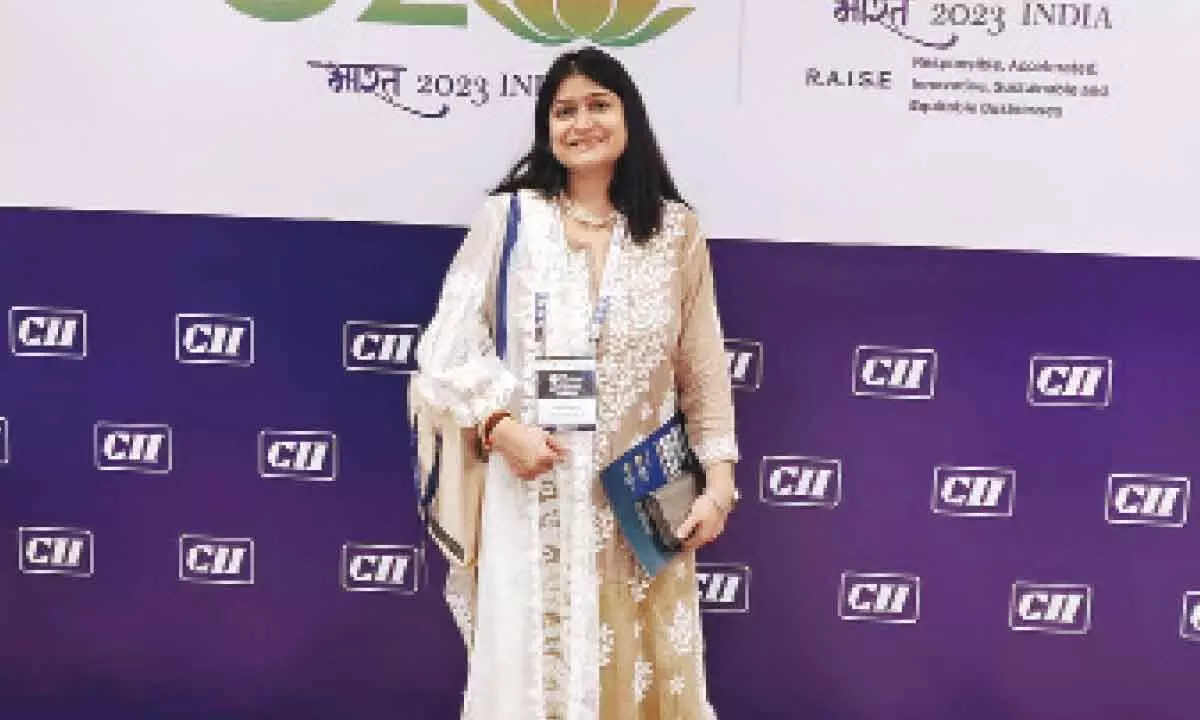
Ramja Geosensor founder Pooja Goswami
It will be launching India’s first paper-based infection and antimicrobial resistance detection system in April 2023 at a cost of around `2 to 3 lakh
Ramja Genosensor Pvt Ltd, a med-tech startup incubated at IIT Delhi, has developed the world's first paper-based device that can identify any bacterial infection and antibiotic resistance in just 90 minutes. Using this device and its state of the art technology, the physicians can give the right antibiotics to their patients and the right time without waiting for the lab results.
The company is further developing few other panels for this sensor-based point of care digital device. In an exclusive interview, Ramja Geosensor founder Pooja Goswami shares with The Hans India on how their device is effective and cheap when compared to any existing technology in detection of microbial infection and antibiotic resistance.
When Ramja Genosensor was founded and what made you to come up with a unique paper-based device to detect infections?
Timely detection has been a critical factor in Ramja Genosensor's journey, and the cause remains very close to my heart. In 2014, I was treating my father, who was suffering from gastric lymphoma. While he was on his way to recovery, he caught a sudden infection during chemotherapy.
When somebody you love the most is suffering, you want the results quickly because doctors want to see the reports before prescribing antibiotics. For my father's culture report, I went to a private lab, and it took 72 hours. And that was a long time for the doctor to change the medication.
During the wait, my father passed away, leaving me shocked. I lost him to an infection, which the lab could not detect in time. The shock turned to determination, and I set out to bridge the gap. I started reading and researching infections, and found out about a technology related to biosensors. This revelation led us to start Ramja Genosensor in 2018.
Is it a first-of-its-kind device in the world or have you inspired from any similar technology existing somewhere else?
It is first of its kind device in the world. For this, we have received an Indian patent. We are about to receive the US patent also. Our product is already published in 152 countries all over the world.
Which organisations have certified the device up to now?
The organisations which have any medical device and Internet of Things (IoT) device has to be certified from the Central Drugs Standard Control Organisation (CDSCO) under the Drugs Controller General of India (DCGI) guidelines. So we are working on the same for approval from CDSCO for manufacturing.
This device is already being registered and we have received our manufacturing license number. And we are also going to be certified from ISO 13485 which is also half done. And we will be having the certificate maybe by the end of next month.
How the paper-based device works? Is it available in the market? What is its cost?
Paper-based biosensors are a type of paper-based micro-fluids that can detect pathogens in samples. The low cost, portability, and ease of use of paper-based detection systems have all been praised. Because of its portability, it's highly recommended for detection research.
A lot of work is going on to increase the accuracy, efficiency, and sensitivity of paper-based biosensors to test for multiple contaminants at the same time.
For the first time in India, we are launching India's first paper-based infection and antimicrobial resistance detection system in April 2023. Its cost will be around Rs 2 to 3 lakh.
Where do you have the R&D and manufacturing facilities? Are you planning to scale up the production?
We have our research and development (R&D) and manufacturing facilities in New Delhi. We will be definitely going to scale up our production as we start getting responses from the market.
Are you working on any other use cases for the same device? What is the marketing strategy ahead?
We have developed the paper-based sensor, which is a unique and fastest method till now for the infection detection and antibiotic resistance. As per our marketing strategy, we are also developing few other panels for this device. For example, our first panel with the Urinary Tract Infection (UTI) as well as the critical panel is ready.
The UTI panel is absolutely ready to launch and we are also working on the sepsis panel, fungus panel and pneumonia panel. For this, the same device will be used and this is a single channel. We will be launching very soon our multichannel device so that we may get results of all the panels' altogether.
How big is your team, particularly in the R&D? Are you going to add more people in the near future?
As of now, we have a 10-member R&D team. We are planning to hire more talented people in our R&D team. We also have other staffs for marketing, sales, HR, artificial intelligence, accounts and finance departments.
Could you throw some light on the financials of the company? How much have you invested so far? Are you in need of funds for your expansion plans?
Ramja Genosensor is just four years old and we have received several grants from Indian brands as well as international government bodies. We received almost Rs 2.5 crore till the date. We could develop the proof of concept (POC). We are now having our Indian patent, and US patent will be received very soon.
We have the manufacturing unit with the production started off. We have also our regulatories half done. So, we are at a stage ready to launch our device and deploy in the market. We are really looking forward for the financial support as well as the collaborations with the governments and the corporates. Till now, we have invested almost Rs 3 crore, out of which Rs 2.5 crore was received as the grant and Rs 50 lakh was almost bootstrapped money.
Have you set any short-term business goals? What is your immediate next target to achieve?
What Ramja Genosensor has developed should not be limited to the corporate world or the only diagnostic labs. It should be reachable to the small villages. All the places where the infections do happen and people are not able to detect just because of the unavailability of infrastructure or very expensive services.
One can just have this portable device with a small setup at very less cost. We are not looking for earning money at any cost. We are just looking for detection of infection and antibiotic resistance at a less cost. People should get right antibiotic at a right time with the help of our technology.
What are the awards and accolades received by the startup till now?
National Health System Resource centre by the Ministry of Health & Family Welfare, Government of India, conducted a technical appraisal committee meeting in October, 2022 and award to our Genosensor device under "Innovation Health Product Category'' in National Health Innovation Portal.
Ramja was shortlisted as one of the top 75 innovative startups of the country and it was inaugurated by Prime Minister Narendra Modi on 9 June, 2022.
It was one of the top 10 finalists of Asia Pacific MedTech Innovator 2022. It was also shortlisted to represent India at world innovation programme slush 2022 at Finland.
We have been selected for Samridh Accelerator Programme by the Ministry of Electronics and Information Technology (MEITY) for financial support of Rs 35 lakh in association with Foundation for Innovation and Technology Transfer (FITT), IIT-Delhi. We are among top six semi-finalists of Together 2023, an entrepreneurship boot camp and venture competition.
We are again among the top six winners of the first edition of Pfizer INDovation incubation initiative in association with Atal Innovation Mission (AIM), NITI Aayog, Social Alpha, and FITT, IIT-Delhi.
We also got good remarks from the panelists, and investors showed their interest in our work and device. We successfully made it among top five winners at BioAsia 2023. BioAsia is an annual international event focused on lifesciences, biotechnology, pharma, medtech and healthtech sectors. A 12-member jury comprising experts from diverse fields selected the five from 75 startups, including two from Telangana, were selected for cash awards.
(This is the twelfth article of WTC Shamshabad- BioAsia 2023 Series, a collaborative effort of World Trade Center - Shamshabad and BioAsia, Asia's largest life-sciences and healthcare forum, to highlight the achievements and accelerate growth in the Life Sciences industry)









